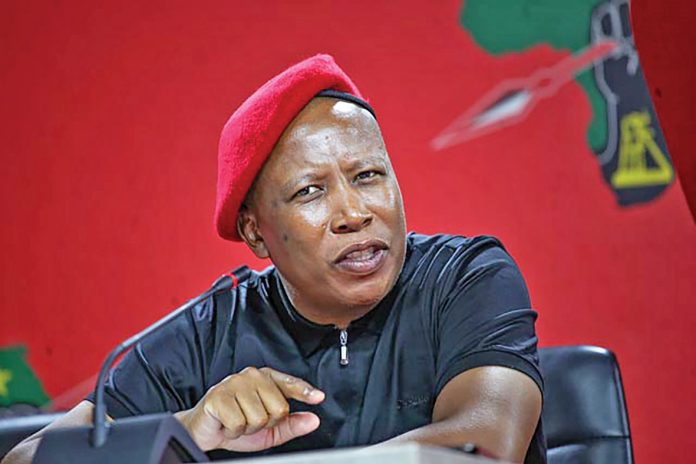The plan to officially relocate parliament from Cape Town to Tshwane has finally been set in motion, with EFF leader Julius Malema on Friday introducing a private members’ bill that will give effect to the relocation process.
Malema called for debate in the National Assembly when it reconvenes in the second quarter.
Malema argues that parliament’s current location in Cape Town creates several problems for MPs and officials from organs of state and the broader society who wish to participate in legislative and oversight functions performed by parliament.
“Parliament is located in the farthest province from the majority of provinces, making it inaccessible to the majority of South Africans, including members of parliament who spend a significant amount of time travelling to and from parliament as a result. Participation in parliamentary programmes is limited to individuals and institutions with financial resources, excluding those unable to travel to Cape Town,” he said.
Malema said parliament and the government spent a lot of money on travel and lodging for MPs, which can be greatly reduced if the seat of parliament was located in Gauteng.
Last year, the parliamentary joint standing committee on financial management said though moving parliament elsewhere would be costly, it would support the move. The committee also conceded that it will be an arduous process, which needed careful planning.
The plan initially gained momentum during the tenure of former speaker Baleka Mbete, who announced in May 2018 that parliament had appointed a company to conduct a socio-economic and impact study on the proposal.
Other opposition parties also weighed in on the EFF proposal with the Freedom Front Plus saying that there must be a proper assessment of how much the exercise will cost.
“Secondly, we say that since it was the constitution, which decided that the seat of parliament should be in Cape Town, the constitution would have to be amended to provide for relocation of parliament,” said party leader Pieter Groenewald.
The DA slated the move and said the party will use available legislation to ensure that the plan does not see the light of day.
“It is a shambolic bill, which will hold no constitutional muster. There have been studies done in the past [showing] that moving the seat of parliament will cost billions of rand and lead to job losses.
The EFF drew the matter out of excitement and will not even go through the certification process of the private members’ bill,” said DA chief whip Natasha Mazzone.
Proponents of the relocation say the government will save in the long term as the housing and infrastructure needed to accommodate MPs will be focused in Gauteng.
It is not the first time that the debate has stirred up public discourse, having first been proposed by the ANC in the early 90s, but it was shot down.
In 2016, parliament said about R7-billion will be needed and that the government will save more than R500-million in the long term.
The current setup was the product of the British colonies the Free State, Transvaal, the Cape and Natal, which were jointly known as the Union of South Africa.
The country was divided into three parts: Cape Town became the legislative capital, Pretoria the administrative or executive capital while Bloemfontein became the judicial capital.
To read more political news and views, click here.
Follow @SundayWorldZA on Twitter and @sundayworldza on Instagram, or like our Facebook Page, Sunday World, by clicking here for the latest breaking news in South Africa. To Subscribe to Sunday World, click here



